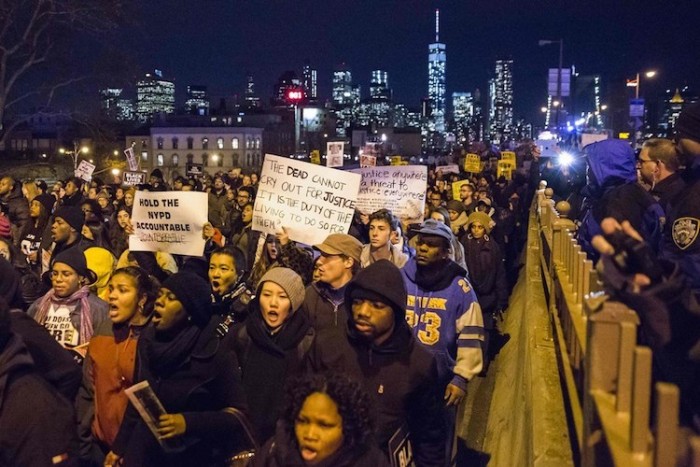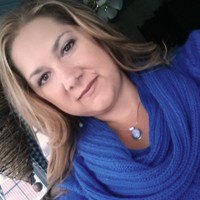In the past few weeks here on elephant journal there has been an on-going debate about the legitimacy and ethos of the phrase “Real Women Have Curves.”
The discussion has centered around the assumption that this statement implies that those without curves are not real women.
I have seen similar concerns raised in many places as popular media seeks to examine the topics of power and privilege. Partially, this is because social media provides a platform for marginalized groups to seek out and support each other in ways which were previously inaccessible.
In many instances, calls for unity and support have been misinterpreted by those outside the marginalized group—calling the support segregation or even reserve discrimination.
I find these claims to be especially apparent in the places that are dedicated to unity, peace and mindful living, which is troubling to me. Too often those who are privileged hear a disenfranchised group claim they are worthy and assume somehow it indicates the dominant group is not also worthy.
The idea that somehow acknowledging that one has privilege or power destroys unity, in my mind, is unfounded. In my experience, the best way to truly reach a place of equity is for those with power and privilege to examine that privilege and use it to open spaces for the disenfranchised.
It is OK to be part of the privileged group! Power is not inherently a bad thing! What you do with it and how you acknowledge or refuse to acknowledge it is where the real change happens. Community psychologists, Roderick Watts and Isabel Serrano-Garcia, have said, “Any hope for the formation of alliances across the divide of oppression requires that the beneficiaries of privilege first critically analyze their status and attend to their own sociopolitical development.” I could not agree more. It is essential especially for those who seek to be part of a mindful community, those who purport to be moguls of social justice, that we recognize that we are neither singly privileged nor oppressed.
Each one of us has a multiplicity of identities that may experience privilege in some arenas and oppression in others. Likewise, individuals may experience both liberation/privilege and oppression regarding the very same piece of our identity based on the surrounding environment. For instance, your European skin and hair may make navigating the hair-care selection at the salon very easy in the U.S., but you may have a very difficult time trying to find skin cream, hair care products or make-up while in the Dominican Republic.
If we are going to take ourselves seriously as not just “examiners” of oppression and liberation, but as co-creators of the truth we seek to live then we must not only acknowledge the fact that sometimes we have the power (even the most oppressed of us) and sometimes we don’t (even the most privileged of us).
Allow me to digress into some non-body image/beauty examples in the hopes of shedding some light on this issue. I have heard the same arguments around the #BlackLivesMatter needing to be changed to #AllLivesMatter. The trouble is no one is arguing that all lives don’t matter—we are simply reminding those who hold the power, advertisers, media, corporations, police, government, etc. that, indeed, black lives are beautiful and real and human and deserving of love and respect, which does not happen enough.
When Susan G. Komen holds a breast cancer rally no one shouts, “What about prostate cancer?” When a loved one dies no one exclaims at the funeral “I lost someone important too!” To do so would seem callous and inconsiderate. So why the fuss over body types? Black lives?
Simply, because no one wants to be the bad guy. Many people feel that by acknowledging the world is set up a little more conveniently for white folks, heterosexual folks, Christian folks, able-bodied folks, and yes thin folks that somehow those who are White, heterosexual, Christian, able-bodied and/or thin are to blame for the marginalization that happens to those who are not.
The reality is no one wakes up every morning thinking about how they are going to make life difficult for people who are not like them. Most people are good, hard-working individuals who try to live mindfully. However, true mindfulness is about being aware of your surroundings. If you are not aware of the power or privilege you hold and how those around you do not have access to the same spaces of power you do, you can never truly be mindful and committed to peace.
As Martin Luther King said in his book Stride Toward Freedom, “True peace is not merely the absence of tension, it is the presence of justice.” Without self-examination there can be no justice. Without critical reflection and, above all, lived experience on what it is like to be on the other side we can never truly move toward social change. The privileged will never understand how far the under-privileged need to come up to end structural violence and the oppressed will never understand how to make well-reasoned and realistic goals, time-tables and plans for breaking down the barriers to social justice. To fail to examine these systems will prevent us all from reaching heaven, utopia and peace, and doom us all to reincarnate this system of hell for most, and heaven for a few.
Yes. There are other body types, others perspectives that need to be heard, but giving voice to the all-too-often voiceless and disenfranchised does not take away your own voice. Standing with them only makes your claim to beauty, your claim to humanity even more legitimate. You can shine more because you can embrace that it is not always all about you. That’s mindful. That is peaceful. That is unity.
Relephant:
Do Bodhisattvas get Angry? A Response to the Killing of Eric Garner.
Author: Rosalie Rodriguez
Editor: Travis May
Photo: Benjamin Forrest/Flickr







Read 0 comments and reply